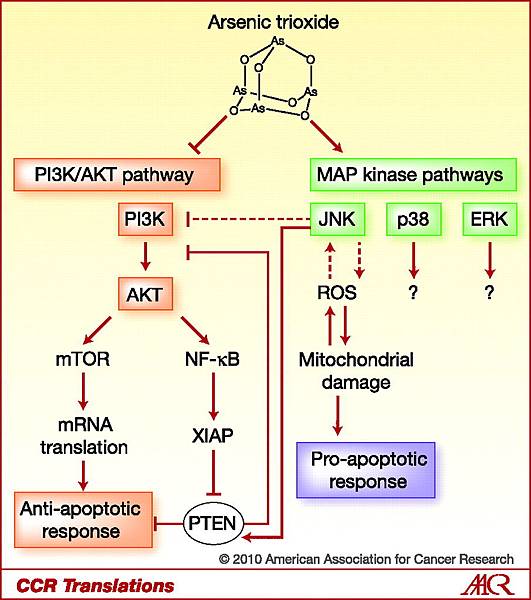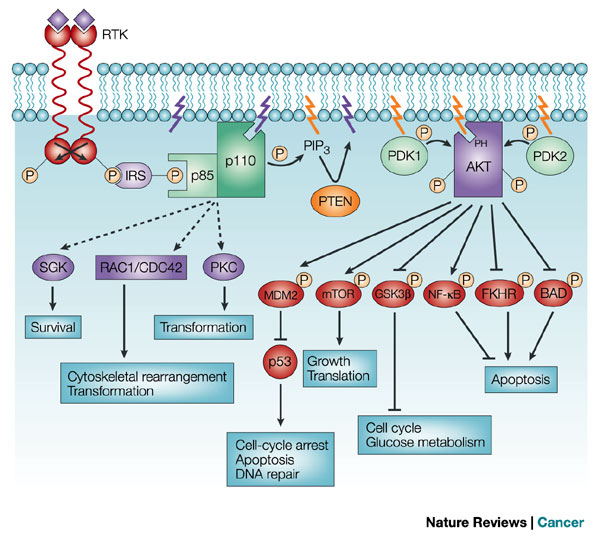








AKT(Akt1、PKB)Signal Pathway
The name Ak-t does not refer to its function. The "Ak" in Akt was a temporary classification name for a mouse bred and maintained by Jacob Furth that developed spontaneous Thymic lymphomas. The "t" stands for 'Thymoma'; the letter was added when a transforming retrovirus was isolated from the Ak strain, which was termed "Akt-8". When the oncogene encoded in this virus was discovered, it was termed v-Akt. Thus, the later identified human analogues were named accordingly.
Akt, also known as Protein Kinase B(PKB), is a serine/threonine-specific protein kinase that plays a key role in multiple cellular processes such as Glucose metabolism, Apoptosis, Cell proliferation, Transcription and Cell migration.
Akt1 is involved in Cellular survival pathways, by Inhibiting apoptotic processes. Akt1 is also able to induce Protein synthesis pathways, and is therefore a key signaling protein in the cellular pathways that lead to Skeletal muscle hypertrophy, and General tissue growth. Mouse model with complete deletion of Akt1 manifests growth retardation and increased spontaneous apoptosis in tissues such as testes and thymus. Since it can Block apoptosis, and thereby Promote cell survival, Akt1 has been implicated as a major factor in many types of cancer. Akt(now also called Akt1)was originally identified as the oncogene in the transforming retrovirus, AKT8.
Akt2 is an important signaling molecule in the Insulin signaling pathway. It is required to induce glucose transport. In a mouse which is null for Akt1 but normal for Akt2, glucose homeostasis is unperturbed, but the animals are smaller, consistent with a role for Akt1 in growth. In contrast, mice which do not have Akt2, but have normal Akt1, have mild growth deficiency and display a diabetic phenotype (insulin resistance), again consistent with the idea that Akt2 is more specific for the insulin receptor signaling pathway.
The role of Akt3 is less clear, though it appears to be predominantly expressed in the brain. It has been reported that mice lacking Akt3 have small brains.



 留言列表
留言列表
